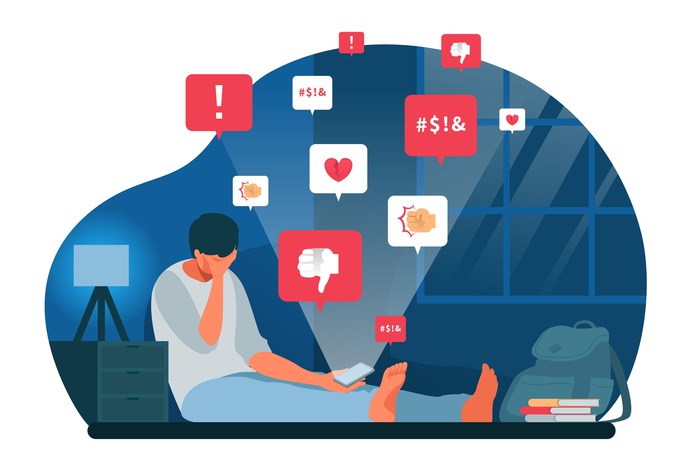In today’s digital age, social media has become an integral part of our lives, shaping how we connect, communicate, and consume information. With the rise of smartphones and constant internet connectivity, social media platforms like Facebook, Instagram, Twitter, and TikTok have garnered billions of users worldwide. While social media offers many benefits, such as facilitating communication and providing entertainment, its excessive use can have significant implications, particularly on mental health.
Imagine a world where every aspect of your life is curated, filtered, and shared with a global audience. This is the reality for millions of people who are actively engaged on social media platforms. From scrolling through endless feeds to seeking validation through likes and comments, social media has fundamentally changed how we perceive ourselves and others.
In this article, we will explore the profound impact of social media on mental health. We will dive into the various ways in which social media use can influence our thoughts, emotions, and behaviors. Also, we will discuss strategies for maintaining a healthy relationship with social media and mitigating its negative effects.
Positive Effects of Social Media on Mental Health
Connection
Social media platforms provide a convenient way for people to stay connected with friends and family, especially those who are geographically distant. This can help reduce feelings of loneliness and isolation, promoting a sense of belonging and social support.
Support
Social media can also serve as a valuable support network for individuals dealing with mental health issues. Online communities and groups offer a space for people to share their experiences, seek advice, and receive encouragement from others who may be going through similar challenges.
Awareness
Social media plays a crucial role in raising awareness about mental health issues and reducing stigma. Campaigns, hashtags, and personal stories shared on platforms can reach a wide audience, fostering understanding and empathy towards those struggling with mental health conditions.
Negative Effects of Social Media on Mental Health
Comparison
One of the most significant negative effects of social media is the tendency for users to compare themselves unfavorably to others. The curated nature of social media feeds often leads to feelings of inadequacy and low self-esteem as individuals compare their lives, appearance, and achievements to those of others.
Cyberbullying
Social media provides a platform for cyberbullying, where individuals can be harassed, threatened, or humiliated online. Cyberbullying can have severe effects on mental health, leading to anxiety, depression, and in extreme cases, suicide.
Fear of Missing Out (FOMO)
The constant stream of updates and posts on social media can contribute to the fear of missing out (FOMO). This fear, fueled by the desire to be constantly connected and involved, can lead to feelings of anxiety, inadequacy, and dissatisfaction with one’s own life.
Tips for Maintaining a Healthy Relationship with Social Media
Limit Usage
Set limits on the amount of time spent on social media each day. This can help prevent overuse and reduce the negative impact on mental health.
Quality Over Quantity
Focus on quality interactions rather than the quantity of likes or followers. Cultivate meaningful connections and engage with content that adds value to your life.
Unfollow Negative Accounts
Regularly review the accounts you follow and unfollow those that consistently post content that makes you feel negative emotions. Curate your feed to include content that uplifts and inspires you.
Mindful Use
Be mindful of your feelings while using social media. Notice if certain types of content or interactions lead to negative emotions and take steps to limit your exposure to them.
Conclusion
In conclusion, social media has a profound impact on mental health, both positive and negative. While it can provide a sense of connection and support, it can also lead to negative effects such as comparison, cyberbullying, and FOMO.
It’s essential for individuals to maintain a healthy relationship with social media by setting limits on usage, focusing on quality interactions, unfollowing negative accounts, and being mindful of their feelings while using these platforms.




